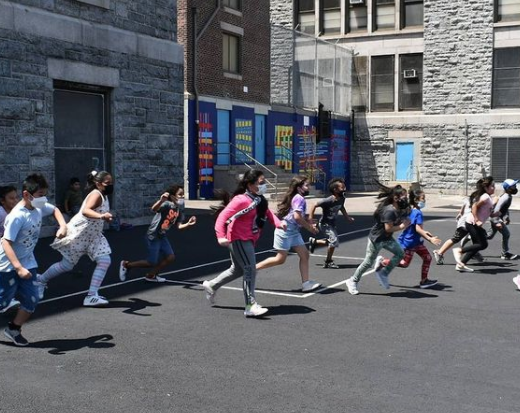
By Chekemma J. Fulmore-Townsend, President and CEO, Philadelphia Youth Network
Following a year of disconnection and disruption from traditional learning and working for many young people, summer youth employment programming such as WorkReady is offering young people a sense of normalcy, as well as the opportunity to learn new skills and engage in meaningful work experiences.
The Bureau of Labor Statistics states that more than 32 percent of teens have a summer job this year — the highest we’ve seen since 2008! Additionally, in June, there was an increase in available jobs in several sectors where young people commonly work, including leisure and hospitality, public and private education, professional and business services, retail trade, and other services. Additionally, this summer, young people are stepping up and filling in for jobs that otherwise may not have been available to them due to labor shortages across the country.
This summer, more than any other summer, it has been important to meet young people where they are, and provide safe, enriching, and valuable work experiences. Managing safety as businesses determine how and when they return to work has proven to be a major challenge. With less businesses at full capacity, implementing in-person experiences has been more difficult than anticipated.
Summer jobs are critically important for young people, their families, local communities, local businesses, and the economy in a variety of ways, including:
- Summer jobs play a pivotal role in providing early employment experiences, job-readiness skills, and long-term financial stability through opportunities to receive much-needed income.
- Research shows that working during the high-school years sets young people up for increased long-term wages and employment, and that involvement in summer youth employment programs has large-scale benefits for youth who are the most vulnerable.
- For many families, summer jobs offer an opportunity for young people to contribute to house-hold earnings by augmenting family income.
- Summer jobs also help uplift local communities. Summer jobs promote safety communities and can help combat violence.
- Summer jobs contribute to the local talent pipeline and provide employers an opportunity to give back to their communities. They also allow employers to foster diversity and inclusion and invest in the future.
In an effort to better serve the ever-evolving youth workforce, programming this year focuses on providing new technology (such as the Program Locator Tool) to ease the process and expanding the Financial Literacy resources and tools. Resources include weekly workshops to teach young people about how to protect their money, save for the future, budget or understand their credit score. These initiatives will prepare young people for day-to-day financial autonomy and help set young people up for life-long financial stability.
We know that the impacts of summer youth employment will prepare young people for life-long success, but it is not enough to just provide skills and experience. Not only is work as we traditionally knew it transformed, but so too, are the needs of the young people that WorkReady has historically served and that businesses that volunteer to host young people. As the nation embarks on economic recovery efforts, summer youth employment programming is experiencing disruption as we return to work in the same ways that many businesses are also experiencing the new demands of the workplace. Adjusting to the new realities of work is critical to ensure that young people are not shut out of transformation.
In short, summer jobs not only lead to a stronger economy, but prepare young people for the future of work, school, and life. As we rebuild the workforce, we too must rethink the experience of summer employment to prepare young people for the current and future needs of the workplace.
—
About Chekemma Fulmore-Townsend:
With a commitment to increasing young people’s access to life-changing opportunities, Chekemma Fulmore-Townsend joined the Philadelphia Youth Network (PYN) in 2005. As President and CEO, Chekemma is charged with overseeing the organization’s vision, mission, and overall direction. Drawing on more than 15 years of experience, Chekemma has used her social work foundation in macro-practice with a concentration in research and non-profit administration to influence the way PYN views its work and decision-making processes. Before her appointment as President and CEO, Chekemma served in various capacities throughout the organization; most recently, she was PYN’s Vice President of Program Services.
About WorkReady
WorkReady programs offer 12–24-year-olds in Philadelphia opportunities for workforce preparation. WorkReady School-Year opportunities are available by invitation only. WorkReady Summer programming runs between July and August each year. For many young people, work experiences are a critical first introduction to the world of work. WorkReady Summer offers 100+ different programs through 80+ partner organizations throughout Philadelphia. This summer, the program will offer safe in-person experiences for young people to gain valuable experience and develop critical skills. Each year, at least twice as many young people apply for the roughly 8,000 opportunities available. WorkReady partners and supporters are working to raise awareness and raise funds so that more young people can work this summer. WorkReady is managed by the Philadelphia Youth Network (PYN). For more information, visit www.workready.org.



